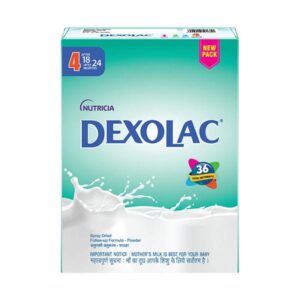INFANT MILK SUBSTITUTE
INFANT MILK SUBSTITUTE: Drug: Infant Milk Substitute
Use: Infant Milk Substitute is a product that is used as an alternative source of nutrition for infants who are unable to breastfeed or when breastfeeding is not possible. It is specially formulated to meet the nutritional needs of growing infants.
Mechanism of Action: Infant Milk Substitute provides essential nutrients such as proteins, carbohydrates, fats, vitamins, and minerals that are necessary for normal growth and development in infants. It is designed to mimic the composition of breast milk as closely as possible to ensure optimal nutrition.
Dose: The dose of Infant Milk Substitute varies depending on the age, weight, and specific nutritional needs of the infant. It is typically indicated on the product packaging and should be used as directed by the healthcare provider or according to the recommended guidelines.
Side Effects: While Infant Milk Substitute is generally safe and well-tolerated, some potential side effects may include:
1. Digestive Issues: Some infants may experience constipation, diarrhea, or stomach discomfort when transitioning to an Infant Milk Substitute. It is essential to ensure proper preparation and correct dilution of the formula to minimize these issues.
2. Allergies or Sensitivities: Certain infants may have allergies or sensitivities to certain ingredients in the Infant Milk Substitute, such as cow’s milk protein or soy protein. Symptoms may include rash, hives, wheezing, or gastrointestinal discomfort. In such cases, a healthcare professional should be consulted, and an alternative formula may be recommended.
3. Overfeeding or Underfeeding: Improper preparation or incorrect feeding practices can lead to either overfeeding or underfeeding of the infant, which may result in weight gain issues or nutritional deficiencies. It is crucial to follow the recommended feeding guidelines and consult a healthcare provider for any concerns.
4. Risk of Infection: It is essential to maintain proper hygiene and sterility when preparing and handling Infant Milk Substitute to reduce the risk of contamination and infection.
Note: It is always recommended to consult a pediatrician or healthcare provider before starting an Infant Milk Substitute to ensure that it is suitable for the infant’s specific nutritional needs and to address any concerns or questions.
This product is available for pickup only



